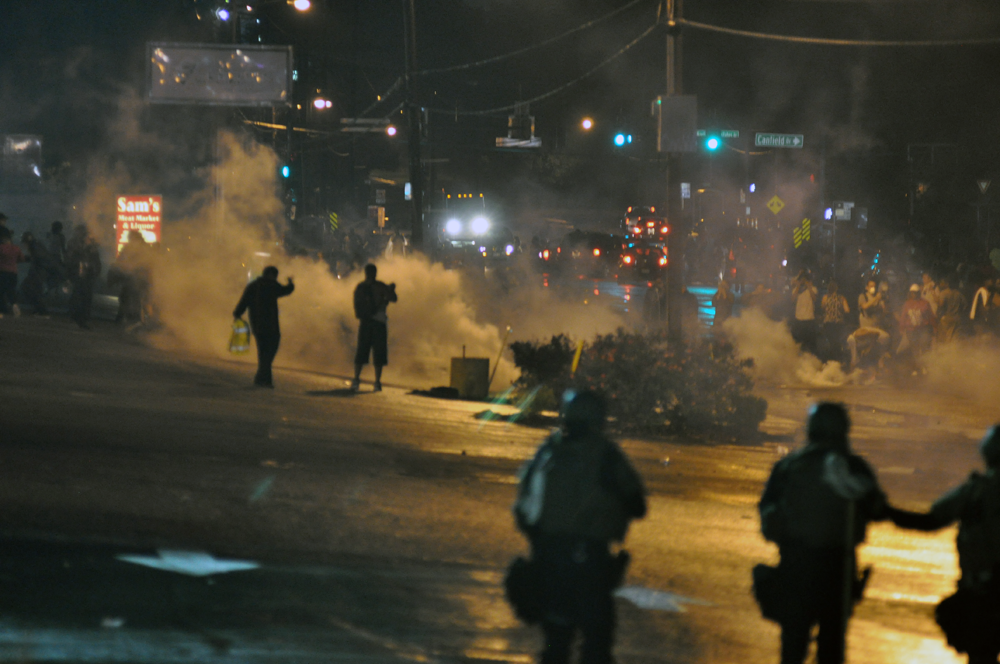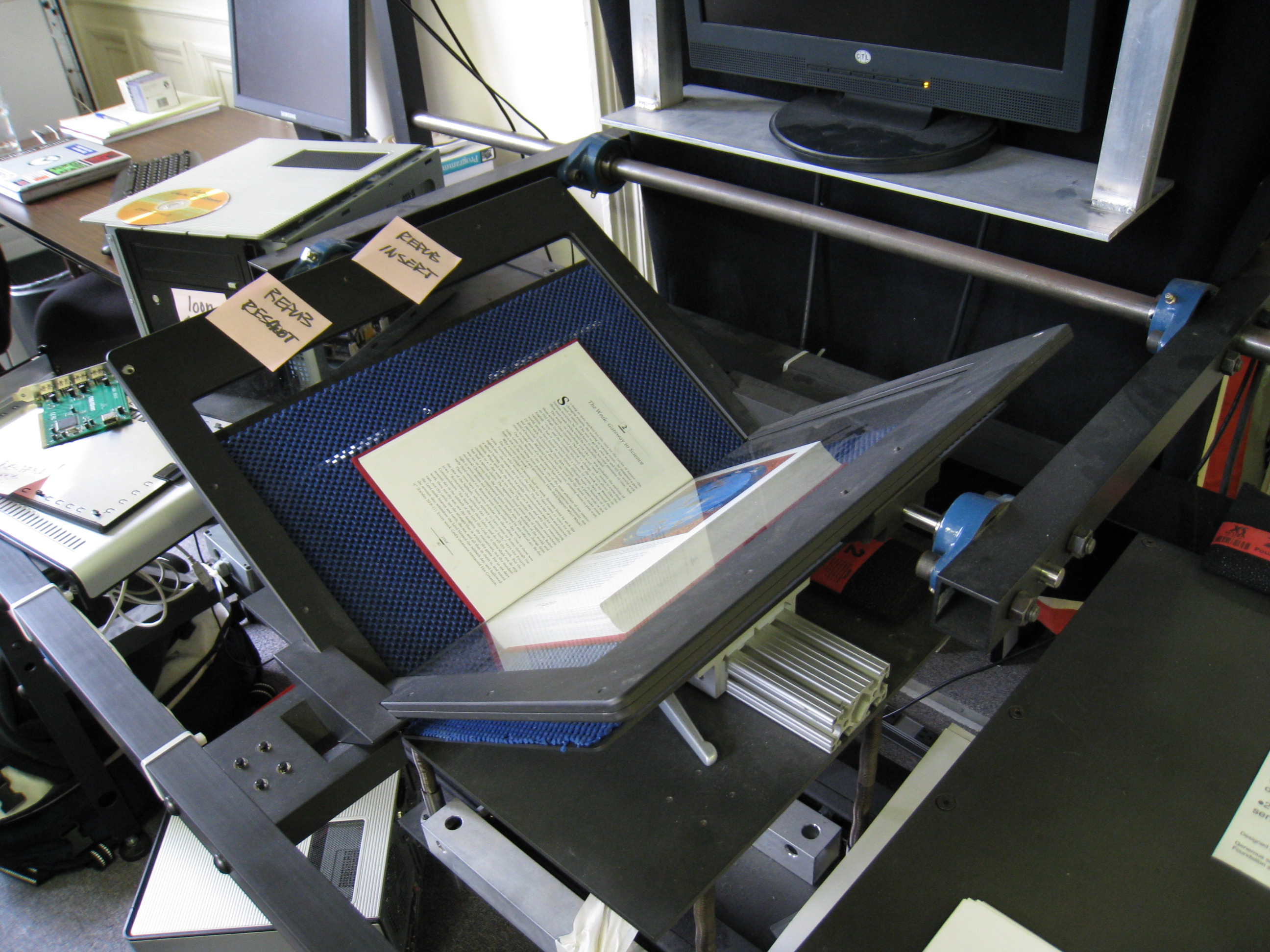|
Community Archives
Community archives are archives created or accumulated, described, and/or preserved by individuals and community groups who desire to document their cultural heritage based on shared experiences, interests, and/or identities, sometimes without the traditional intervention of formally trained archivists, historians, and librarians. Instead, the engaged community members determine the scope and contents of the community archive, often with a focus on a significant shared event, such as the Ferguson unrest (2014). Community archives are created in response to needs defined by the members of a community, who may also exert control over how materials are used. Although local and regional societies, churches, and museums have collected community records for generations, community archives increased in number and popularity throughout the 1970s and 1980s, which Anne Gilliland and Andrew Flinn believe may be due in part to increased interest in oral history and community representation in ... [...More Info...] [...Related Items...] OR: [Wikipedia] [Google] [Baidu] |
Archives
An archive is an accumulation of historical records or materials – in any medium – or the physical facility in which they are located. Archives contain primary source documents that have accumulated over the course of an individual or organization's lifetime, and are kept to show the function of that person or organization. Professional archivists and historians generally understand archives to be records that have been naturally and necessarily generated as a product of regular legal, commercial, administrative, or social activities. They have been metaphorically defined as "the secretions of an organism", and are distinguished from documents that have been consciously written or created to communicate a particular message to posterity. In general, archives consist of records that have been selected for permanent or long-term preservation on grounds of their enduring cultural, historical, or evidentiary value. Archival records are normally unpublished and almost al ... [...More Info...] [...Related Items...] OR: [Wikipedia] [Google] [Baidu] |
Ferguson Unrest
The Ferguson unrest (sometimes called the Ferguson uprising, Ferguson protests, or the Ferguson riots) were a series of protests and riots which began in Ferguson, Missouri on August 10, 2014, the day after the fatal shooting of Michael Brown by police officer Darren Wilson. The unrest sparked a vigorous debate in the United States about the relationship between law enforcement officers and African Americans, the militarization of police, and the use-of-force law in Missouri and nationwide. Continuing activism expanded the issues by including modern-day debtors prisons, for-profit policing, and school segregation. As the details of the shooting emerged, police established curfews and deployed riot squads in an attempt to maintain order. Along with peaceful protests, there was a significant amount of looting and violent unrest in the vicinity of the site of the shooting, as well as across the city. There was also a significant amount of media criticism of the militarizatio ... [...More Info...] [...Related Items...] OR: [Wikipedia] [Google] [Baidu] |
Anne J
Anne, alternatively spelled Ann, is a form of the Latin female given name Anna. This in turn is a representation of the Hebrew Hannah, which means 'favour' or 'grace'. Related names include Annie. Anne is sometimes used as a male name in the Netherlands, particularly in the Frisian speaking part (for example, author Anne de Vries). In this incarnation, it is related to Germanic arn-names and means 'eagle'.See entry on "Anne" in th''Behind the Name'' databaseand th"Anne"an"Ane"entries (in Dutch) in the Nederlandse Voornamenbank (Dutch First Names Database) of the Meertens Instituut (23 October 2018). It has also been used for males in France (Anne de Montmorency) and Scotland (Lord Anne Hamilton). Anne is a common name and the following lists represent a small selection. For a comprehensive list, see instead: . As a feminine name Anne * Saint Anne, Mother of the Virgin Mary * Anne, Queen of Great Britain (1665–1714), Queen of England, Scotland, and Ireland (1702–07) an ... [...More Info...] [...Related Items...] OR: [Wikipedia] [Google] [Baidu] |
Oral History
Oral history is the collection and study of historical information about individuals, families, important events, or everyday life using audiotapes, videotapes, or transcriptions of planned interviews. These interviews are conducted with people who participated in or observed past events and whose memories and perceptions of these are to be preserved as an aural record for future generations. Oral history strives to obtain information from different perspectives and most of these cannot be found in written sources. ''Oral history'' also refers to information gathered in this manner and to a written work (published or unpublished) based on such data, often preserved in archives and large libraries.oral history. (n.d.) The Columbia Electronic Encyclopedia®. (2013). Retrieved March 12, 2018 from https://encyclopedia2.thefreedictionary.com/oral+history Knowledge presented by Oral History (OH) is unique in that it shares the tacit perspective, thoughts, opinions and understanding of ... [...More Info...] [...Related Items...] OR: [Wikipedia] [Google] [Baidu] |
Jeannette Bastian
Jeannette Bastian is an archival scholar, academic, author, and a Fellow of the Society of American Archivists. From 1987 to 1998, she was the Territorial Librarian of the U.S. Virgin Islands and has published widely on topics related to colonial archives and decolonial archival practices. Her books include ''Owning Memory: How a Caribbean Community Lost Its Archives and Found Its History'' (2003), ''Community Archives: The Shaping of Memory'' (2009), and ''Decolonizing the Caribbean Record: An Archives Reader'' (2018). References {{DEFAULTSORT:Bastian, Jeannette American archivists Female archivists Living people Year of birth missing (living people) ... [...More Info...] [...Related Items...] OR: [Wikipedia] [Google] [Baidu] |
United States Virgin Islands
The United States Virgin Islands,. Also called the ''American Virgin Islands'' and the ''U.S. Virgin Islands''. officially the Virgin Islands of the United States, are a group of Caribbean islands and an Territories of the United States, unincorporated and organized territory of the United States. The islands are geographically part of the Virgin Islands, Virgin Islands archipelago and are located in the Leeward Islands of the Lesser Antilles to the east of Puerto Rico and west of the British Virgin Islands. The U.S. Virgin Islands consist of the main islands of Saint Croix, Saint John, U.S. Virgin Islands, Saint John, and Saint Thomas, U.S. Virgin Islands, Saint Thomas and 50 other surrounding List of minor islands of the United States Virgin Islands, minor islands and cays. The total land area of the territory is . The territory's capital is Charlotte Amalie, U.S. Virgin Islands, Charlotte Amalie on the island of St. Thomas. Previously known as the Danish West Indies of the D ... [...More Info...] [...Related Items...] OR: [Wikipedia] [Google] [Baidu] |
Digitization
DigitizationTech Target. (2011, April). Definition: digitization. ''WhatIs.com''. Retrieved December 15, 2021, from https://whatis.techtarget.com/definition/digitization is the process of converting information into a digital (i.e. computer-readable) format.Collins Dictionary. (n.d.). Definition of 'digitize'. Retrieved December 15, 2021, from https://www.collinsdictionary.com/dictionary/english/digitize The result is the representation of an object, image, sound, document, or signal (usually an analog signal) obtained by generating a series of numbers that describe a discrete set of points or samples. The result is called '' digital representation'' or, more specifically, a ''digital image'', for the object, and ''digital form'', for the signal. In modern practice, the digitized data is in the form of binary numbers, which facilitates processing by digital computers and other operations, but digitizing simply means "the conversion of analog source material into a numerical f ... [...More Info...] [...Related Items...] OR: [Wikipedia] [Google] [Baidu] |
Participatory Archives
Citizen Participation or Public Participation in social science refers to different mechanisms for the public to express opinions—and ideally exert influence—regarding political, economic, management or other social decisions. Participatory decision-making can take place along any realm of human social activity, including economic (i.e. participatory economics), political (i.e. participatory democracy or parpolity), management (i.e. participatory management), cultural (i.e. polyculturalism) or familial (i.e. feminism). For well-informed participation to occur, it is argued that some version of transparency, e.g. radical transparency, is necessary but not sufficient. It has also been argued that those most affected by a decision should have the most say while those that are least affected should have the least say in a topic. Classifying participation Sherry Arnstein discusses eight types of participation in ''A Ladder of Citizen Participation'' (1969). Often ... [...More Info...] [...Related Items...] OR: [Wikipedia] [Google] [Baidu] |
Participatory Culture
Participatory culture, an opposing concept to consumer culture, is a culture in which private individuals (the public) do not act as consumers only, but also as contributors or producers ( prosumers). The term is most often applied to the production or creation of some type of published media. Overview Recent advances in technologies (mostly personal computers and the Internet) have enabled private persons to create and publish such media, usually through the Internet. Since the technology now enables new forms of expression and engagement in public discourse, participatory culture not only supports individual creation but also informal relationships that pair novices with experts.Jenkins, Henry, Puroshotma, Ravi, Clinton, Katherine, Weigel, Margaret, & Robison, Alice J. (2005). Confronting the Challenges of Participatory Culture: Media Education for the 21st Century, available at http://www.newmedialiteracies.org/wp-content/uploads/pdfs/NMLWhitePaper.pdf. Retrieved on 2/4/2013 ... [...More Info...] [...Related Items...] OR: [Wikipedia] [Google] [Baidu] |
Community
A community is a social unit (a group of living things) with commonality such as place, norms, religion, values, customs, or identity. Communities may share a sense of place situated in a given geographical area (e.g. a country, village, town, or neighbourhood) or in virtual space through communication platforms. Durable good relations that extend beyond immediate genealogical ties also define a sense of community, important to their identity, practice, and roles in social institutions such as family, home, work, government, society, or humanity at large. Although communities are usually small relative to personal social ties, "community" may also refer to large group affiliations such as national communities, international communities, and virtual communities. The English-language word "community" derives from the Old French ''comuneté'' ( Modern French: ''communauté''), which comes from the Latin '' communitas'' "community", "public spirit" (from Latin ''commun ... [...More Info...] [...Related Items...] OR: [Wikipedia] [Google] [Baidu] |
Archive
An archive is an accumulation of historical records or materials – in any medium – or the physical facility in which they are located. Archives contain primary source documents that have accumulated over the course of an individual or organization's lifetime, and are kept to show the function of that person or organization. Professional archivists and historians generally understand archives to be records that have been naturally and necessarily generated as a product of regular legal, commercial, administrative, or social activities. They have been metaphorically defined as "the secretions of an organism", and are distinguished from documents that have been consciously written or created to communicate a particular message to posterity. In general, archives consist of records that have been selected for permanent or long-term preservation on grounds of their enduring cultural, historical, or evidentiary value. Archival records are normally unpublished and almost al ... [...More Info...] [...Related Items...] OR: [Wikipedia] [Google] [Baidu] |






